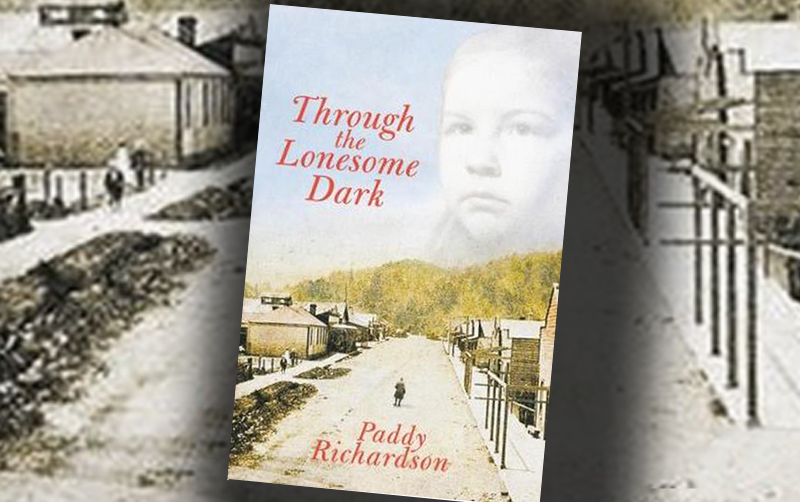It’s the early 1900s and Pansy is living poor on the West Coast in Blackball, which apparently is a charming town these days. Pansy’s a smart kid. Smarter than her pa. Today you’d hope this would be a positive thing and she would be given every opportunity to make use of her talents, to be educated and offered the chances that would help a small town girl rise to fulfill her potential. You’d hope that someone would notice the bruising on her face and not turn away.
But, at the start of the century, girls were given other tasks to occupy them. Here is a particularly immersing description of washing:
The washing takes all of a morning and most of the afternoon as well. The fire is lit then the copper has to be filled, six bucketfuls it takes. Then it’s separating the whites from the coloureds and drawing out water, once it’s hot enough, into the tin bath for the coloured things to soak. And then measuring out the right amount of the soap and the soda for the whites and boiling them up. Then it’s the colours have to be rubbed up and down on the washboard to get out the dirt and the soap stinging her hands and the water that hot it burns her. Then it’s the rinsing and lifting out the hot, sopping cloth with the dolly, heaving it up, pushing, pulling it through the mangle, wringing, rinsing, wringing, rinsing and Ma has to have the blue bag and the starch added even though Pansy knows it’s not needed because nobody sees it and, any road, it all has to be done again the week after. It’s the way my mother showed me and it’s the way I do it and you’ll do it as well, missy. And then the whole dripping weight of it has to be hefted onto the clothes line and heaved up with the stick with the notch in it to keep it high enough so it catches the wind and the sun.
You can see why the poor kid doesn’t have much time for schoolwork.
There were three of them, Clem and Pansy and Otto, a tight little bunch of kids with a friendship based on the fact that they like being around each other. It doesn’t need any more than that. The years of shared games and adventures and school knot them together. And there’s Klara, Otto’s tall and clumsy sister, stumbling through her sums and excluded from the gang.
They grow up. Clem’s family do not want their boy courting Pansy. For a start, Pansy and her ma are left footers. As if the mother’s Catholicism is worse than the father’s drunken violence.
Pansy’s mother is trapped in a dreadful domestic situation and, although unable to help, she wants her daughter to escape the same fate. And Pansy tries. She really does. As the kids mature, two very different kinds of love emerge with the boys: one of passion and one of necessity–both beautifully portrayed and despite the manipulative nature of it somehow, as a reader, I never gave up on Pansy.
A middle section of the book sees German-born Otto interned on Somes Island, Pansy in trouble and Clem escaping a difficult situation by heading off to the fighting in France. He’s a tunneler in the trenches,the misery and horror and full weight of the war happening above him through that thin layer of earth. Until it comes crashing through.
This is classy writing, the descriptions always fresh and creative. There’s a nurse with ‘a face like a robber’s dog’ which had me laughing. Here’s Clem on the ship to war: Fairly early on he got used to the way a ship wails and creaks and moans and now he sleeps like a baby in his bunk despite the shifting around and the snoring from the men close in around him. It’s like being rocked, and he likes that feeling, and he likes the smell of salt and all, and being up on deck with the sea, smooth and silvery some days then others rolling and tossing about, and the colour of it so dark it’s almost black.
There are unexpected turns in the story, an unsettling unpredictability that kept me on my toes, an authentic feeling to the way that the characters behave according to their passions, best interests be damned. History is full of people doing stupid things and making choices we, as modern readers, know are not in their best interests. It’s what makes history so interesting. We’ve moved on 100 years in attitude and cultural shift since Pansy, Otto and Clem grew up in Blackball. Faced with the same issues that confronted them, would we make the same choices today?
That is the big question. Are we getting any better at this life stuff?

